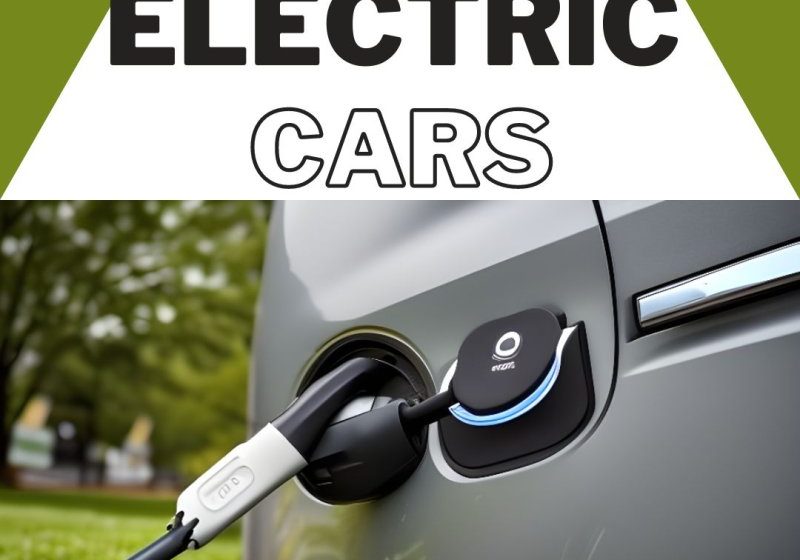Online Insurance Me Kya Dhyan Rakhe | ऑनलाइन बीमा खरीदते समय यह सावधानियां जरुर रखे

Electric Cars The Global Rise of Revolutionizing the Automotive Industry
In recent years, the automotive industry has witnessed a seismic shift towards electric vehicles (EVs) as the world seeks to combat climate change and reduce carbon emissions. With advancements in technology and increasing environmental awareness, electric cars have emerged as a viable and sustainable alternative to traditional internal combustion engine (ICE) vehicles. This article explores the global rise of electric cars, highlighting their benefits, adoption rates, challenges, and the transformative impact they have on the automotive industry.
-
The Environmental Imperative:
The environmental benefits of electric cars are undeniable. With zero tailpipe emissions, EVs significantly reduce greenhouse gas emissions and air pollution, making them a crucial component of efforts to combat climate change. Electric cars are powered by electricity, which can be generated from renewable energy sources, further reducing the carbon footprint associated with transportation. As countries worldwide face mounting pressure to transition to cleaner energy solutions, electric cars have gained traction as a key solution.
-
Government Initiatives and Incentives:
To promote the adoption of electric cars, governments around the world have implemented various incentives and initiatives. Many countries offer financial incentives such as tax credits, grants, and subsidies to encourage consumers to purchase electric vehicles. Additionally, governments have set ambitious targets and implemented stricter emission standards, pushing automakers to invest heavily in electric vehicle development. These policies have stimulated the growth of the electric car market globally.
-
Surging Global Adoption:
The global adoption of electric cars has experienced a remarkable surge in recent years. According to the International Energy Agency (IEA), the number of electric cars on the road surpassed 10 million in 2020, with China, Europe, and the United States leading the charge. China, the world’s largest market for electric cars, has implemented aggressive policies, such as subsidies and stringent emission regulations, resulting in a significant increase in EV sales. European countries, driven by the European Union’s strict emission targets, have witnessed a rapid shift towards electric mobility, with countries like Norway leading the world in electric car market share. The United States has also seen a steady rise in electric car adoption, supported by federal tax credits and state-level incentives.
-
Technological Advancements and Infrastructure Development:
The advancement of battery technology has been a game-changer for electric cars. Lithium-ion batteries, with improved energy density and falling costs, have extended the driving range of EVs and reduced charging times. Moreover, technological advancements in electric drivetrains, regenerative braking, and energy management systems have enhanced the overall performance and efficiency of electric cars. To complement this progress, infrastructure development is essential. Governments and private entities are investing heavily in expanding charging networks to alleviate range anxiety and provide convenient charging options for electric car owners. Rapid-charging stations, wireless charging technology, and smart charging solutions are becoming increasingly prevalent, addressing one of the key concerns surrounding electric vehicle adoption.
-
Challenges and Future Outlook:
While the electric car revolution is gaining momentum, several challenges persist. The limited range of electric vehicles, though improving, remains a concern for potential buyers, particularly for long-distance travel. The availability and accessibility of charging infrastructure still vary across regions, hindering widespread adoption. Battery production and recycling also pose environmental challenges, as the extraction of raw materials and disposal of used batteries need to be managed responsibly. However, as technology advances and economies of scale kick in, these challenges are gradually being overcome.
The future outlook for electric cars is undeniably bright. Automakers are heavily investing in electrification, with many pledging to phase out internal combustion engines entirely. The falling costs of batteries, coupled with increased production capacity, will make electric cars more affordable and accessible to a broader range of consumers. As the electric car market matures, innovations such as solid-state batteries and hydrogen
The world is at the forefront of a transportation revolution, as electric cars gain momentum and take center stage in the global automotive industry. With increasing concerns about climate change, air pollution, and fossil fuel depletion, countries across the globe are embracing electric vehicles (EVs) as a key solution for a more sustainable future. In this article, we will explore the rapid growth of electric cars worldwide, examining the factors driving their adoption, the challenges they face, and the potential benefits for both individuals and the planet.
-
The Rise of Electric Cars
The adoption of electric cars has witnessed a remarkable surge worldwide in recent years. Government policies and incentives have played a crucial role in promoting the transition from traditional internal combustion engine (ICE) vehicles to electric vehicles. Countries such as Norway, the Netherlands, and China have implemented aggressive measures, including generous subsidies, tax exemptions, and supportive infrastructure, which have accelerated the uptake of electric cars.
Furthermore, advancements in battery technology have addressed range anxiety concerns and made EVs more appealing to consumers. The declining costs of lithium-ion batteries, coupled with improved charging infrastructure, have significantly increased the viability and accessibility of electric cars.
-
Electric Cars Global Leaders in Electric Mobility
Several nations have emerged as leaders in the electric mobility sector, setting ambitious targets to phase out fossil fuel vehicles in the coming years. Norway, for instance, has been at the forefront of electric car adoption, with EVs accounting for over 70% of new car sales in 2021. The government’s strong incentives, charging infrastructure development, and public awareness campaigns have propelled Norway to the top of the EV market.
China, the world’s largest car market, has made substantial strides in electric mobility. The government’s commitment to reducing air pollution and dependence on oil imports has led to a surge in electric car sales. With numerous domestic EV manufacturers and an extensive charging network, China is making rapid progress toward its goal of becoming a global leader in the EV industry.
The United States has also witnessed significant growth in electric car sales, driven by a combination of federal and state-level incentives, consumer demand, and the emergence of Tesla as a prominent player. Additionally, European countries like Germany, France, and the United Kingdom have implemented ambitious policies, aiming to ban the sale of new gasoline and diesel cars by 2030 or 2035.
-
Overcoming Challenges
While the electric vehicle market is expanding rapidly, certain challenges need to be addressed to ensure its sustained growth. One key challenge is the limited charging infrastructure, particularly in less-developed regions. Governments and private entities must invest in the expansion of charging networks to alleviate range anxiety and provide a seamless charging experience for EV owners.
Moreover, the environmental impact of battery production and disposal needs to be mitigated. Although electric cars produce zero tailpipe emissions, the extraction of raw materials for batteries and their eventual disposal pose environmental concerns. Developing recycling programs and investing in sustainable battery technologies are essential for minimizing the ecological footprint of electric vehicles.
-
Electric Cars Environmental and Economic Benefits
The widespread adoption of electric cars brings numerous environmental and economic benefits. By replacing traditional combustion engines with electric motors, greenhouse gas emissions can be significantly reduced, mitigating the effects of climate change. Additionally, a shift to electric vehicles reduces air pollution in urban areas, improving public health and quality of life.
From an economic standpoint, the growth of the electric car industry fosters job creation and technological advancements. As the demand for electric vehicles increases, manufacturers and suppliers will invest in research and development, leading to innovation and job opportunities in various sectors.
Conclusion
The global transition to electric cars marks a pivotal moment in the pursuit of sustainable mobility. With countries around the world


